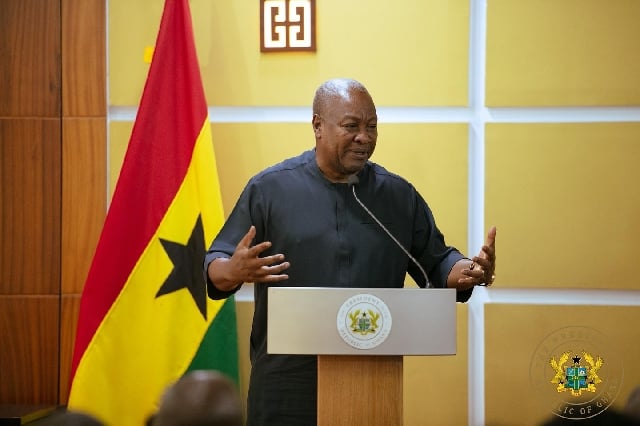President John Dramani Mahama’s recent meeting with a delegation led by Yaa-Naa Abukari II, the overlord of Dagbon, underscored a renewed commitment to the accelerated development of the Northern Region of Ghana. The visit, primarily to congratulate President Mahama on his recent electoral victory, provided a platform for reaffirming the collaborative spirit between the government and traditional authorities in pursuing transformative progress for the region. President Mahama’s pledge to prioritize the Northern Region’s development stems from a recognition of its historical disadvantages and the understanding that its advancement is crucial for national prosperity. This commitment signifies a concerted effort to bridge the development gap and ensure equitable distribution of resources and opportunities across the country.
The core of President Mahama’s development agenda centers around enhancing healthcare infrastructure and improving road networks. The Savannah Health Investment Plan, a flagship initiative of his administration, aims to revitalize the healthcare system in the Northern Region. This includes significant investments in rehabilitating existing facilities, such as the Yendi Municipal Hospital, and expanding healthcare access to underserved rural communities through the deployment of community health workers. These measures are designed to address the pressing healthcare challenges faced by the region and improve the overall well-being of its residents. The focus on community health workers reflects a strategy of bringing healthcare closer to the people, especially in remote areas where access to medical facilities is limited.
Recognizing the critical role of infrastructure in fostering economic growth, President Mahama outlined significant progress under the Northern Roads Improvement Corridor. This initiative encompasses upgrades to major arterial roads like the Tamale–Yendi–Katale road, as well as the construction and rehabilitation of vital feeder roads connecting agricultural communities in Sang, Saboba, and Bumbuna. Improved road networks are essential for facilitating trade, accessing markets, and transporting agricultural produce, thereby contributing to economic diversification and increased income generation within these communities. This investment in infrastructure demonstrates a commitment to unlocking the agricultural potential of the region and creating economic opportunities for rural populations.
A significant development highlighted during the meeting was the revival of the long-delayed Eastern Corridor Road Project. President Mahama announced that under his government’s Big Push Initiative, crucial sections of the road, including the Oti Damanko–Nkwanta, Nkwanta–Dodi Pepesu, and Nakpanduri–Kulungugu stretches, would finally receive the necessary attention. This project is of strategic importance as it links the Northern Region to other parts of the country, facilitating the movement of goods and people, and bolstering regional integration. The completion of the Eastern Corridor Road is expected to significantly reduce travel time, improve access to markets, and stimulate economic activities along the corridor.
The Yaa-Naa, through his representative, the Paramount Chief of Zangbalinga, Naa Bapir Zangbaling-Naa Dr. Jacob Yakubu Mahama, expressed deep appreciation for President Mahama’s renewed focus on Dagbon’s development. This endorsement from the traditional leadership signifies the importance of this initiative for the people of Dagbon and underscores the shared vision for progress. The Yaa-Naa’s pledge of unwavering support for government-led initiatives reflects a strong partnership between the traditional authorities and the government, which is crucial for the successful implementation of development programs. This collaborative approach recognizes the influential role of traditional leaders in mobilizing community support and ensuring that development efforts are aligned with local needs and priorities.
The meeting between President Mahama and the Yaa-Naa’s delegation served as a powerful demonstration of the shared commitment to accelerating the development of the Northern Region. The President’s emphasis on healthcare improvements, road infrastructure development, and the revitalization of the Eastern Corridor Road Project demonstrates a comprehensive approach to addressing the region’s developmental challenges. Coupled with the unwavering support of traditional authorities, these initiatives hold the promise of transforming the Northern Region, improving the living conditions of its people, and contributing significantly to national progress. This collaborative effort between the government and traditional leaders exemplifies the importance of partnerships in achieving sustainable development and ensuring that no region is left behind in the pursuit of national prosperity.


